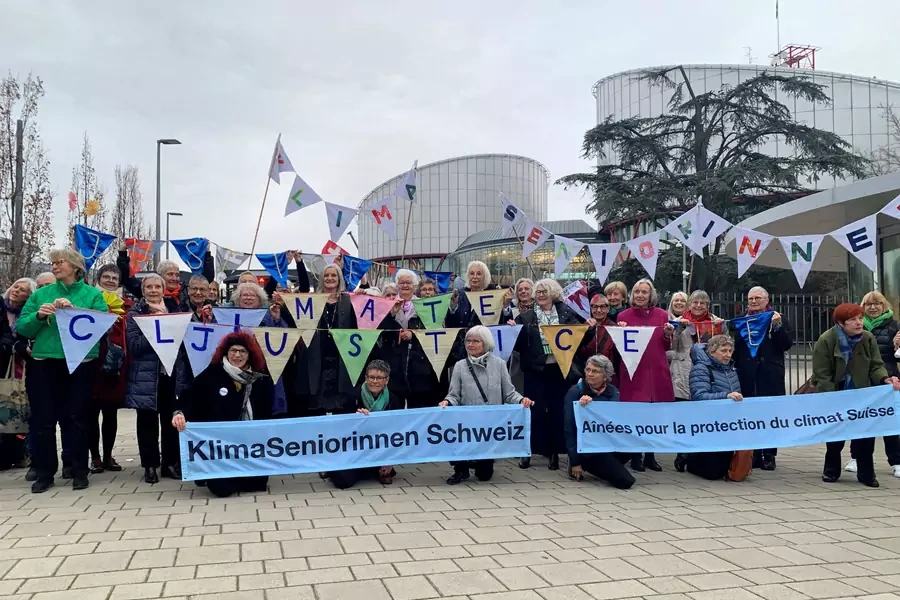Women This Week: Elderly Women Sue Switzerland Over Climate Change

Activists Claim that Failure to Meet Climate Benchmarks Violates Human Rights
Over two thousand elderly women in Switzerland are suing their government in an attempt to compel action against climate change. The case is being heard in the European Court of Human Rights after being dismissed by two Swiss courts. The Swiss women—who have an average age of seventy-three—are claiming that their country’s failure to address climate change violates their human rights. Switzerland is seeing its glaciers melt and is warming at twice the global rate, but its citizens voted down a measure that would have sought to reduce carbon emissions. Citing rising temperatures and increased incidents of heatwaves, the women are arguing that their health and quality of life is being put at risk by Switzerland’s inaction. “Some people say, why are you complaining, you're going to die anyway. But we don't want to die just because our Swiss government has not been successful in coming up with a decent climate policy,” Elisabeth Stern told the BBC.
Women Speak Out on Social Media Over Japan’s Declining Population
More on:
Women in Japan are taking to social media after an article was published noting that Japan has the highest number of women over fifty who have never had children among Organization for Economic Cooperation and Development (OECD) countries. Japan’s birth rate fell below eight hundred thousand births in 2022, a decline that could lead to a population drop from 125 to 88 million by 2065. “Japan is on the verge of whether we can continue to function as a society,” said Prime Minister Fumio Kishida. Women are turning to social media to defend their life choices. “Don’t blame women for the low birth rate,” tweeted Ayako, a 38-year-old Tokyo resident, who said that Japan’s traditional gender roles are a problem. Many women in Japan find it difficult to work and have children due to the inequitable distribution of household responsibilities and other things like high cost of living, limited space, lack of childcare, and push for women to only have children after marriage. While women are finding support and community on social media platforms, many worry that their voices will not be included in efforts to shape government initiatives on childcare services and housing facilities for families with children.
Kamala Harris Promotes Women Initiative on Africa Visit
United States Vice President Kamala Harris announced more than $1 billion in initiatives from the U.S. government, the private sector, and foundations this week to improve women’s economic empowerment, nearly half of which will be directed toward supporting women in the digital space and “closing the gender digital divide.” The announcement took place in Ghana on the first leg of the Vice President’s Africa trip, which also included visits to Tanzania and Zambia. The Vice President made a series of announcements on behalf of the Biden-Harris Administration to foster women’s political, economic, and social inclusion in Africa. The U.S. previously announced a $139 million investment in development and culture assistance for Ghana and a $100 million investment in stability and peacebuilding for coastal West African nations.
More on:
 Online Store
Online Store